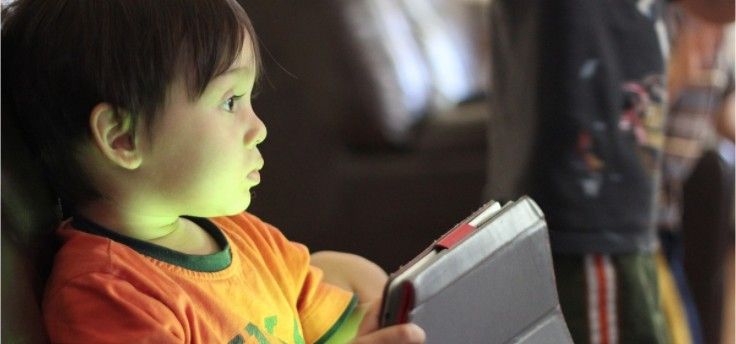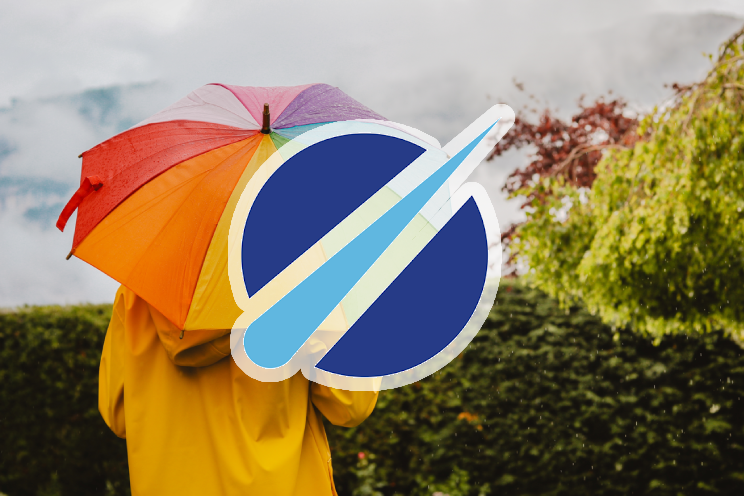you can take this into account
Just a picture of yourself at the Christmas tree online, or of a nicely set table in this dark time of the year. Very atmospheric. They are snapshots that you share without thinking, but what if you are not the person in the photo but your child? It is of course nice for family and friends to see what your family is doing at Christmas, but is it okay to just share pictures of your child?
Contents
Control
In principle, as a parent you are responsible for your child and you determine a lot in the life of your little one. However, that doesn’t mean you can always do whatever you want: if you share photos of your child now, they’ll have an entire online life before they’re even able to run it on their own. Plus, they say that nothing on the internet ever really disappears. What if your child doesn’t like being online at all?
This does not mean that you do not have to share anything at all, but you can choose, for example, to put an emoji over your child’s head. That way it remains anonymous. If you do not want that, you can choose to limit the target group very much. In any case, check the privacy settings of the social medium you use. From this you can determine whether your child’s photos can be found via a search engine such as Google, for example, security company ESET writes. Some social media have the condition that they get the ownership rights over all the photos you share: that is also something to take into account, because it could mean that a platform resells your photos and you suddenly see your child in an online advertisement.
Also check the phone with which you share the photo: what information is attached to a photo. Some people give permission to attach a location to the photo, for example. This may make it easier for malicious parties to trace your child back home, which is a scary idea. Especially if you don’t know that person at all and he or she has bad intentions. In short, making sure that a photo you share contains as little extra information as possible is very wise.
Of course you share a photo of your child out of love and enthusiasm, but realize that not everyone will interpret a photo the same. It’s extremely unlikely to happen, but imagine if your little one’s photo becomes a meme on the internet? It will probably suffer from this for the rest of his or her life, through bullying or simply being recognized on the street. It won’t go that fast, but realize with every photo you post that that can happen and whether you’re okay with that.
It’s a silly thing to say, but ultimately it’s safest not to post anything about your kids on social media. It is not popular advice in terms of how it is received, because social media is so intertwined with our lives and because parents are often very proud of their children and feel that sharing need. That is allowed, but always try to be a strict curator: what exactly can be seen in the photo? Is the text positive and friendly, is there no information about your child, primary school or other information that makes it easier to trace it? Check carefully what social media are allowed to do with the photo, but also what data your smartphone adds to a photo.
You can also set up a notification on Google for when your child’s name appears online. This way you know sooner when someone is writing about your child, although it should be noted that this mainly applies to articles: if someone copies your child’s photo, you cannot receive a notification. However, you can regularly put a photo of your child in Google Images, after which he will check whether the image appears more often on the internet. In addition, it is good to involve the child in the social media post. Explain what you’re doing, what that might mean, and see if your little one agrees to face it or not.

Photos of other people’s children
Unfortunately, this is always a somewhat charged subject, because on the one hand you, as a parent, are afraid that something will happen to your child, but at the same time we bombard each other on social media and entertain each other with photos of our families. Even if you don’t have a family, pay attention to the extent to which you share other people’s kids, for example. Many parents deliberately don’t put their own children online, so don’t try to go beyond their limits by doing it as an aunt/best friend/neighbor/sports friend.
Although it is up to you as a parent or guardian whether or not to post a photo of your child, it is always wise to take the above things into account. In addition, your child can always choose – possibly at a later age – to demand that you delete all photos. You are free to do so, so always keep in mind that this does not only concern your own online environment, but also that of your child. Think before you… post a photo of the child on social media.
How are you in this? Do you post photos of your or other people’s children on social media? Leave your comment below this article.



